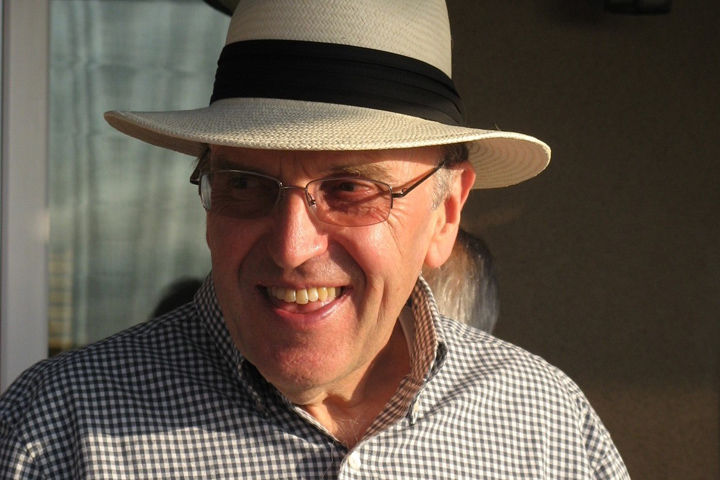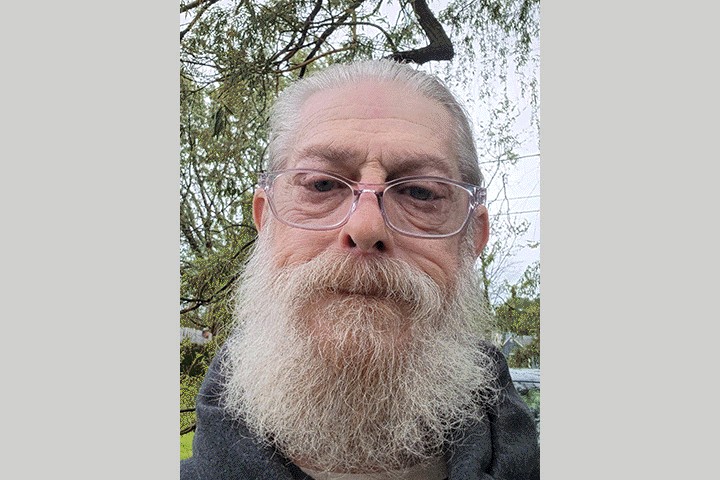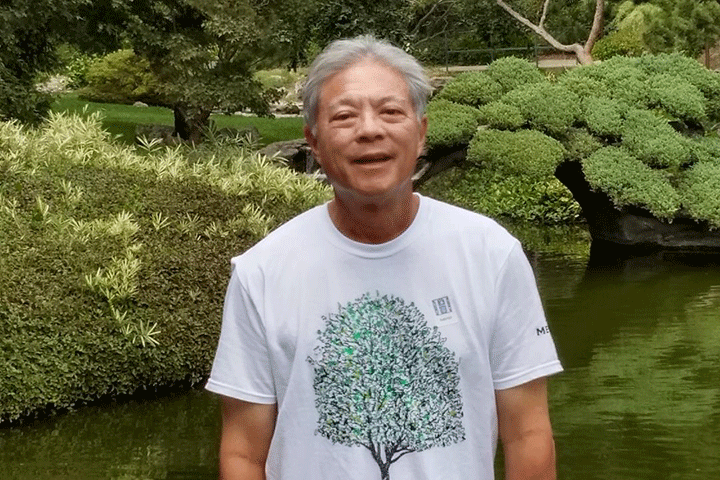Learning to Guide My Pancreatic Cancer Treatment

- Reflux leads to diagnosis of pancreatic ductal adenocarcinoma
- Dilemma: Radiation or not
- Convincing my oncologist and HMO to choose a high-volume surgeon
- No Evidence of Disease three years after Whipple; stage IIB
The diagnosis of pancreatic cancer was a jolt—I was 72, in good health, and proud of my bicycling prowess.
I thought I had persistent acid reflux, but routine liver function tests revealed significant abnormalities. I did not look jaundiced to a liver specialist when he saw me, but he shined a flashlight in my eye and then he could see the telltale yellow. A gastroenterologist performed an endoscopic procedure, an ERCP, and he inserted a stent in my blocked bile duct. Next I had a CT scan. I was told I had pancreatic ductal adenocarcinoma.
After the diagnosis I was functioning on a kind of automatic pilot, following instructions about where to go and which doctor to see.
Two weeks after the diagnosis I had another endoscopic procedure, an EUS, allowing a needle biopsy to confirm the cancer diagnosis. The second gastroenterologist said it did not look good.
A surgeon was next. He said the tumor was touching the mesenteric vein. He thought he could remove the tumor, but there were uncertainties. He was a general surgeon and he said he had performed this operation, the Whipple, about 10 times (I assumed over his career). He had to consult colleagues before scheduling the surgery, and later I heard the consensus was that I should receive chemotherapy first—neoadjuvant treatment.
Because I am in an HMO, Kaiser Permanente, the physician choices were being made for me—at least at the outset.
Starting Treatment with Chemotherapy
I saw Dr. Achala Doraiswamy, an oncologist at Kaiser in San Marcos, California (now with California Cancer Associates, in Murrieta). She drew my attention to the results of my tumor marker blood test, Carbohydrate Antigen 19-9 (CA 19-9). It was over 900 (a month later it was over 1,300); a normal result is under 35.
I started a four-month regimen of chemotherapy, taking Gemzar and Abraxane. Side effects were minimal, but I was hospitalized for a day with cellulitis. My CA 19-9 gradually came down to 25.
Dr. Doraiswamy said pancreatic cancer is especially hard to treat because of stroma (the thick fibrous layer) around the cancer cells that block the chemotherapy from attacking the cancer. Later I learned that scientists at the Salk Institute have completed animal studies that suggest that a synthetic form of vitamin D, paricalcitol, allows chemotherapy agents to penetrate the stroma. Prominent oncologists are prescribing paricalcitol; this off-label use is allowed as it is approved for kidney issues. I took paricalcitol for the last two months of my chemotherapy after surgery.
Asking for Second Opinions from Multiple Surgeons
I started reading about pancreatic cancer every day. Websites of the federal government and the state of California emphasize the importance of having the Whipple surgery at an institution that performs a high volume of surgeries, defined by an expert as at least 15 per year. My HMO in San Diego did not qualify. The University of California, San Diego (UCSD) is a member of the National Comprehensive Cancer Network and has a high volume. Dr. Andrew Lowy, professor of surgery at UCSD, is an acknowledged expert on pancreatic cancer.
I asked my HMO for a second opinion from Dr. Lowy. My request was refused but the HMO offered me the option of opinions from some general surgeons.
By now I wanted a role in determining my fate. I started sending my medical records to other institutions. The University of Heidelberg in Germany has one of the highest annual volumes—over 800—of pancreatic cancer surgeries in the world. They quoted me a price of 52,000 euros (about $57,000 dollars in 2019) for the surgery and hospital stay. This was my back-up plan, if I was not satisfied with what my HMO would provide.
I had learned that the Kaiser hospital in San Francisco (500 miles from me) had a high volume of Whipple surgeries, mostly performed by Dr. Charles Binkley (now in New Jersey); I wanted his opinion, and his surgery. I made a new request to my HMO. My wonderful oncologist, Dr. Doraiswamy, had to endorse this request: she met resistance, but she made the patient’s best interests her top priority.
My HMO scheduled me for radiation. I had five surgeons’ opinions on my options. Two were in favor of radiation before surgery, and two were not. The University of Heidelberg was very emphatic: “Definitely no radiation.” I paid about $500 for a consultation with Dr. Lowy at UCSD to break the tie: he said have the surgery. I had the operation in San Francisco. There were no complications and I was in the hospital for a week. The tumor was at the head of the pancreas and it was 2.8 cm. The surgical biopsy report showed clear margins, but two of nine lymph nodes were positive, with one at the hepatic artery—a sign of a poor prognosis, according to researchers.
Recovery and More Treatment
My oncologist said if I had waited for the radiation I might well have had metastasis. A month after the surgery I started six months of adjuvant chemotherapy. I requested Gemzar and Xeloda. I could not tolerate the Xeloda and stayed on Gemzar alone.
I had molecular profiling of a sample of my tumor. I do not have BRCA or other mutations that might guide my therapy.
An academic oncologist and associate professor at UCSD, Dr. Hitendra Patel, recommended eating cruciferous vegetables, and I do every day.
My status is NED (No Evidence of Disease) three years after the Whipple. My stage is IIB. I have frequent tests of my CA 19-9—and I worry each time. All results since the surgery have been below 10. I opt not to have CT scans in the absence of symptoms.
My future is uncharted. But I try to make the most of the present. I have learned that you have to know what to ask for and who to ask—and you have to use your acquired knowledge and powers of persuasion with your oncologist to explain why you want a different surgeon. I wrote about my experiences in Pancreatic Cancer in an HMO, which is available as a Kindle book on Amazon.





